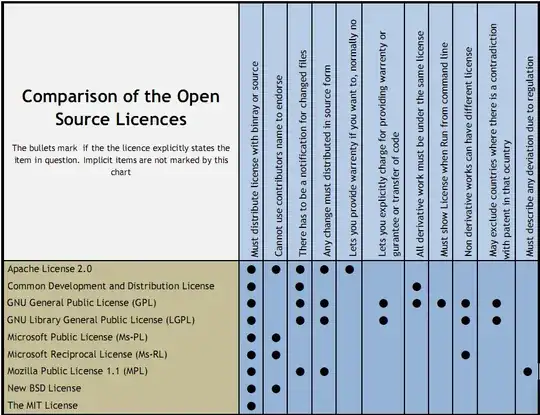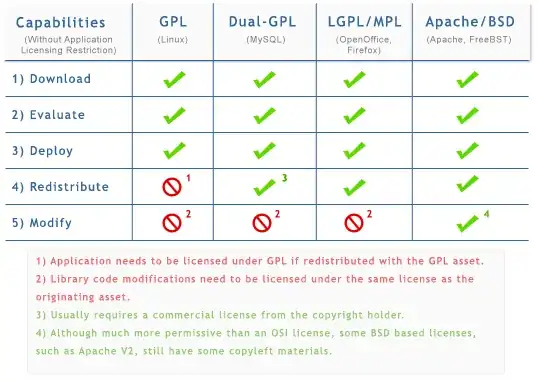The Open Source Initiative lists 9 different licenses in their list of "License that are popular and widely used or with strong communities".
I want to license my project as open-source. Unfortunately, I do not speak legalese. Is there some chart I could consult that will help me make the right choice, or at least point me in the right direction? For example a table summarizing the differences between the licenses, or perhaps a flow-graph using my requirements to guide me into the correct license for me?
I also intend to meet a lawyer, but any information to start with will help.

